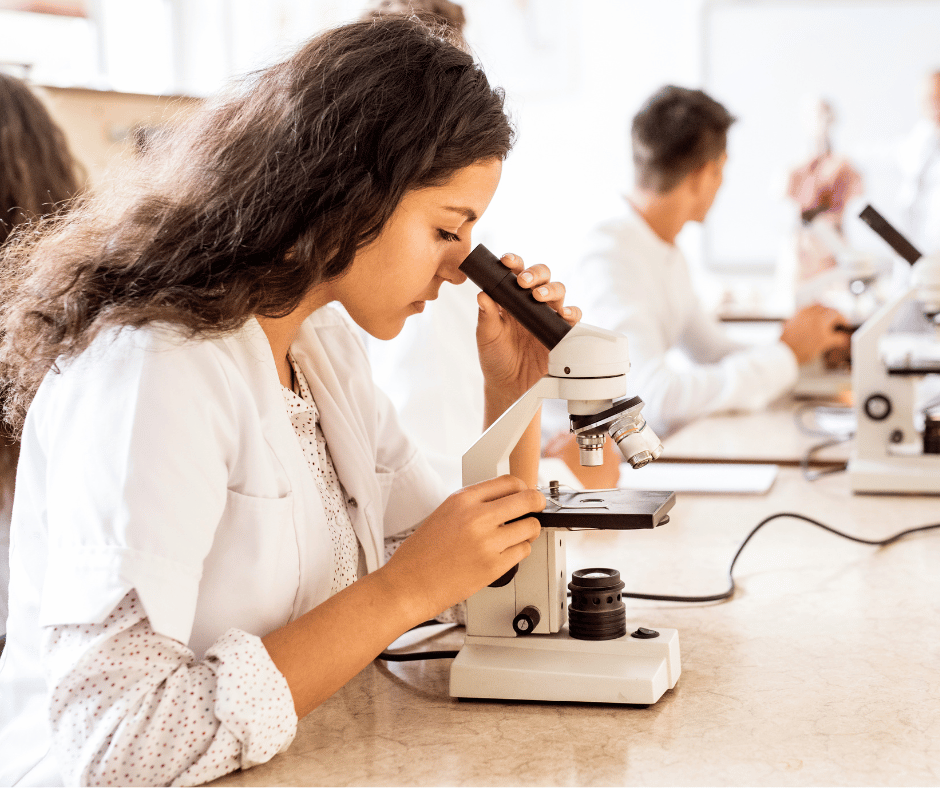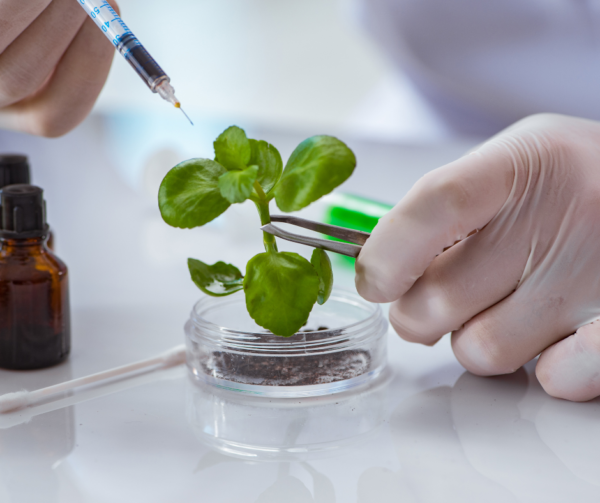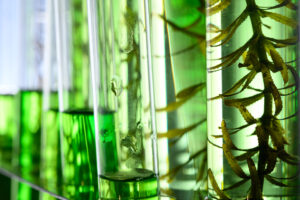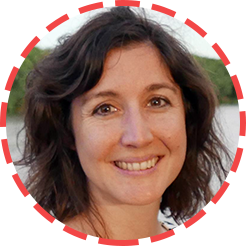In this comprehensive guide, we’re highlighting the key aspects of the IB Biology HL syllabus as well as pointing out the difference between SL and HL.
If you want to know the details of the IB Biology HL syllabus, it means you are either taking the course or you are deciding whether to pick the subject at HL.
Before you make a decision, you should get to know the IB Biology syllabus since it defines what you’re going to learn and how. It is an immersive two-year course for students fascinated by the complex mechanisms of life. IB Biology HL syllabus provides extensive content knowledge across diverse topics – from cells and molecules to ecosystems and evolution.
At the same time, it allows for developing key scientific skills through intensive practical work.
Now, we’ll dive into the syllabus and go through the topics so you can quickly see what the course covers.
IB Biology HL Syllabus Overview
To begin with, 11 topics constitute the core of the IB Biology HL course.
The HL shares 6 of them with the SL, while 5 additional topics are exclusively for this level. Moreover, the programme suggests 4 Option topics. You will need to choose one in order to gain a deeper insight into the subject.
Overall, the syllabus has a balanced approach between theory and practical work.
This means that besides studying theory, you will get a chance to hone your practical skills through investigations, experiments, gathering and analysing data, and similar activities.
On the whole, the course program is designed for 240 hours over the two years in secondary school.
Core Topics
The six core topics of the IB Biology HL syllabus are a central framework that connects the different areas of biology. Basically, they serve as the bedrock of your biological knowledge and set the stage for more advanced exploration.
You will study the following topics over 95 hours in class.
Cell Biology (15 hours)
Cell Biology explores the diversity, structures, and functions of cells. Here, the key concepts are:
- The origin of cells;
- Structure and features of prokaryotic and eukaryotic cells;
- Functions of organelles and cell structures;
- The design and functions of membranes including transport;
- Cell communication and signalling;
- The cell cycle, including mitosis, cytokinesis, interphase, as well as meiosis;
- Techniques to study cells like microscopy, centrifugation, electrophoresis, etc.
Molecular Biology (21 hours)
Next, is molecular Biology. It allows taking a closer look at molecules and chemical processes essential for life. In particular, it covers:
- Structure, synthesis, and roles of biomolecules including carbohydrates, lipids, proteins, nucleic acids, as well as enzymes;
- Metabolism, anabolism, and catabolism processes;
- Properties and functions of water;
- The composition, functions, and replication of DNA and RNA;
- Metabolic pathways such as respiration and photosynthesis.
Genetics (15 hours)
The third topic, genetics, offers a glimpse into the hereditary mechanisms of life. Subsequently, you will get to know:
- The basic information about chromosomes, genes, alleles, and genome;
- Classical genetics and inheritance patterns;
- Principles of inheritance by Mendel;
- Dominants and recessive alleles;
- Genetic diversity and its sources, selection, mutation, etc.;
- Genetic technologies (for example, screening, cloning and biotechnology);
- Ethical considerations of genetic research.
Ecology (12 hours)
This part of the IB Biology HL syllabus focuses on the relationships between organisms and the environment they live in. To be more specific, you’ll investigate:
- Levels of ecological organization starting from individuals and to the biosphere;
- Factors influencing population size, density, and distribution;
- Species interactions (for example, predation, competition, and symbiosis);
- Energy flows through ecosystems;
- Nutrient cycles;
- Biodiversity, habitats and conservation;
- Issues related to climate change.
Evolution and Biodiversity (12 hours)
This section of biology attempts to reveal the mystery of the origin and evolution of life as well as the resulting biodiversity. You will learn more about:
- Causes of evolution;
- Evidence for evolution such as fossil record, biogeography, etc.;
- Darwin’s theory of natural selection;
- Mechanisms of evolution and speciation;
- Natural selection and adaptation;
- Classification of biodiversity;
- Cladistics;
- Threats to biodiversity and conservation.
Human Physiology (20 hours)
Finally, the sixth topic provides more understanding of the systems that maintain biological functions in humans. Specifically, you will investigate:
- Human tissues and biological molecules;
- Digestion and absorption of nutrients;
- Gas exchange and transport systems;
- Musculoskeletal system;
- Nervous system and neural control;
- Excretion and homeostasis.
Additional High-Level Topics
One of the distinctive features of the IB Biology HL syllabus is additional higher-level topics. They provide an opportunity to deepen your understanding and specialize in certain areas of biology. While the core topics are consistent across SL and HL, the additional higher-level topics make it possible for deeper exploration.
Nucleic Acids (9 hours)
This topic deals with the structures and functions of nucleic acids and proteins. You can learn in greater detail about the DNA and navigate the complex world of enzymes.
- Structure of DNA and RNA;
- DNA replication and repair;
- Transcription and post-transcriptional modifications;
- Translation and post-translational modifications;
- Gene expression and regulation.
Metabolism, Cell Respiration and Photosynthesis (14 hours)
With this topic, you will explore energy-producing mechanisms within cells through cellular respiration. Additionally, you will have a chance to learn how plants are able to convert sunlight into energy, including:
- Metabolic pathways of glycolysis, Krebs cycle, and oxidative phosphorylation;
- Chemiosmosis and ATP production;
- Comparing aerobic respiration and fermentation;
- Investigating photophosphorylation;
- Analysing the effect of environmental factors on the rate of photosynthesis.
Plant Biology (13 hours)
You’ll be able to dive deeper into the world of plant biology. As a result, you’ll learn more about the crucial role of plants in maintaining ecological balance.
- Transport in the xylem and phloem plants;
- Growth in plants as well as the factors that affect it;
- Plant reproduction and the role of pollinators;
- Environmental response mechanisms in plants.
Genetics and Evolution (8 hours)
With this topic, you can take your understanding of genetics and evolution to the next level since it explains more advanced concepts and reveals the different ways in which we can apply genetics. In particular, you will learn about:
- Chromosome replication;
- Crossing over;
- Linked and unlinked genes;
- Gene pools and speciation.
Animal Physiology (16 hours)
This topic suggests to take a deeper look at the structure and function of animal body systems and their interactions, such as
- Antibody structure and production;
- Innate, cell-mediated, and humoral immunity;
- Bones, exoskeletons, muscles, joints, as well as parts of the body responsible for movement;
- The critical role of kidneys;
- Osmoregulator and osmoconformer animals;
- Animal reproduction systems.
Option Topics
The IB Biology HL syllabus doesn’t end at the Core topics. It also offers four Optional Topics designed to deepen the knowledge in an area of biology of your choice. Having said that, many schools tend to make the choice of the Option topic for you. Regardless, you will study only one Option topic within 25 hours.
Option A: Neurobiology and Behaviour
This topic focuses on the structure of the nervous system and behaviour of animals and people, in particular:
- Neurons, action potentials and synaptic transmission;
- Neural development (such as neural tube, neurons, axons, synapses, neural pruning, etc.) and its plasticity;
- The design of the brain and the functions of its different parts;
- The autonomic nervous system;
- Brain metabolism;
- Perception of stimuli and different types of receptors (for instance, photoreceptors, structures in the middle ear, sensory hairs, etc.);
- Innate and learned behaviour, including autonomic and involuntary responses, reflexes, imprinting, etc.;
- Neuropharmacology;
- Ethology and social behaviours.
Option B: Biotechnology and Bioinformatics
You’ll get a chance to get to know the applications of biotechnology in fields such as medicine, agriculture, and the environment. The key concepts you’ll focus on are:
- Microbiology in industry;
- Plant and animal biotechnology;
- Genetic engineering, gene transfer, transgenic organisms, etc.;
- Sequencing projects, PCR, and DNA profiling;
- Ethical, social, and ecological implications;
- Biotechnology in medicine;
- Bioinformatics as well as the implementation of databases and software in biology.
Option C: Ecology and Conservation
In this topic, you can learn the ways, in which it is possible to maintain biodiversity and environmental sustainability. You can learn the following in more detail:
- Population ecology: distribution, abundance, life histories, etc.
- Interactions between species and communities;
- Factors influencing ecosystems (competitive exclusion, pollution, etc.);
- Habitat destruction and conservation;
- Sustainability of human activities;
- Population ecology.
Option D: Human Physiology
Finally, the last Option topic provides greater insight into human health and homeostasis through concepts like:
- Nutrition, nutrients, and their role in the maintenance of bodily functions;
- Digestion, absorption, and assimilation of food;
- Kidney function and osmoregulation;
- Gas exchange and transport in humans;
- Endocrine system, hormones, and metabolism;
- The structure of the cardiac system and its interaction with other systems of the body.
Practical Scheme of Work
IB Biology is one of the science subjects. Therefore, it places a strong emphasis on practical skills. It’s not just about theories; it’s also about putting knowledge into action.
According to the IB Biology HL syllabus, the practical component is comprised of various laboratory works, data analysis, investigations, and others. In particular, there are three standout types of practicals you’ll experience within the two-year course of Biology:
Practical activities (40 hours)
These involve performing mini-experiments in order to complement the theory learned in class. The purpose of these activities is to learn and practice laboratory techniques, develop observation and data collection skills, analyse results, as well as gain an understanding of key concepts through hands-on investigation.
Individual investigation (10 hours)
The individual investigation is an essential part of the IB Biology Internal Assessment. Your task here is to plan and carry out an independent research project. You can use school lab resources and guidance from the teacher to complete an investigation.
Group 4 Project (10 hours)
Similarly to other practicals, this assignment involves carrying out an investigation. However, it is not an individual work, but rather a collaboration of students from Biology, Chemistry and Physics to experience the interconnected nature of scientific disciplines. The purpose of this group project is not only to apply knowledge and skills from multiple subjects, but also to improve teamwork and project management skills.
IB Biology HL Syllabus vs. SL Syllabus
Ultimately, HL Biology is not your only option. If you’re interested in Biology but not ready for a full commitment, you can opt for the Standard Level Biology. What is the difference then, you may ask?
Well, IB Biology HL provides a more advanced, intensive, and comprehensive exploration of biological concepts and scientific methodology compared to SL. It extends beyond the foundations of SL to reach a higher level of scientific understanding through additional topics, more complex assessments, as well as greater time devoted to the subject.
- Depth of study. Both the SL and HL have 6 core topics. However, HL introduces 5 additional topics, making it 11 topics to learn in total;
- Option topics. Regardless of the level, the IB Biology syllabus suggests 4 Option topics, out of which you will learn only one. With this in mind, HL has more subtopics and allocates more teaching hours to cover them (25 hours vs. 15 hours at the SL).
- Teaching hours. Overall, it takes 240 hours to complete the course of HL Biology. In contrast, SL students require 90 hours less.
- The final exam is comprised of three Papers and an Internal Assessment for both levels. However, final assessments are more complex and with a greater number of questions at the HL. The time needed to complete Paper 1, Paper 2, and Paper 3 at the SL is approximately 3 hours, while the HL requires 4.5 hours. The Internal Assessment takes 10 hours in both cases.
Get Help with IB Biology HL
Summing up, the IB Biology HL syllabus provides extensive content across a range of Biology topics. As a student, not only will you learn theory but also develop a well-rounded skill set through practical work. Overall, IB Biology is a rewarding course if you want to know more about your body, and the world around you, or wish to pursue a career in the field of Biology.
Needless to say, IB Biology requires a lot of dedication and hard work. If you stumble upon an issue, it might be hard to catch up. Let us, TutorsPlus, be your helping hand in mastering the challenging concepts of Biology as well as honing your experimental techniques. Whether you need assistance in understanding the material, completing your assignments, or preparing for exams, our experienced Biology tutors are here to provide the much-needed support.
Don’t miss your chance to make the most of studying IB Biology course at the Higher Level. Contact our tutors today at TutorsPlus and let us guide you to excel in the advanced biology course.




















